Last year when I was still pregnant with Claire I wrote a post about how J and I are aiming to teach our kids all the languages we collectively know: Cantonese Chinese, Mandarin Chinese, Korean, Japanese, and English.
Well our goal has not swayed. And I like to think that we’re well on our way. How so, you ask?
Right before I gave birth to Claire we met a little girl who — being one month shy of turning two years old — knew three languages.
We asked her parents how they managed to teach her three languages simultaneously, and they told us exactly how…
The mother, who only knew American English, only spoke to her daughter in English from day one.
The father was born in France and was fluent in both French and English. He only spoke to his daughter in French.
Additionally, their full-time nanny is of Chinese descent and speaks Mandarin Chinese. She only speaks to the little girl in Mandarin.
The purpose of having the three main caregivers speak different languages to the baby is so that the baby will learn to differentiate between the three languages.
But how will the baby know that three different words actually mean the same thing?
By having a fourth language tie all three together: sign language.
The parents of this bright little girl told us that starting at the age of six months, all three caregivers started signing words as they said them. And while the girl did start speaking a few months later than average (this is typical of babies who grow up in multilingual households), soon, she was conversing — and signing — to her mother, father, and nanny in three different languages.
J and I took this lesson to heart and have been following their instructions since the day Claire was born. The only difference is that we do not have a nanny. As such, I only speak to her in Korean, J only speaks to her in Cantonese (Mandarin is easier to learn if you know Cantonese first, than vice versa), and we speak to each other in English.
And since Claire will be turning six months old very soon, I picked up the Baby Signs Starter Kit earlier this week.
As she grows older, we will add Mandarin Chinese (which will not be too difficult since she will know Cantonese Chinese) and Japanese (which is very similar to Korean in grammar and structure) to the mix.
The only minor setback we’ve noticed so far is that since only non-family members (who do not see her often) call her by her English name, she has yet to associate the word “Claire” with herself. Meanwhile, I’m pretty certain that she knows — as most babies do at this age — her Korean and Chinese names.
And as mentioned above, we’re also aware that she will most likely begin speaking at a much later age than other kids. Additionally, there is bound to be some language confusion later on. I know a little boy who — very cleverly, I might add — used to refer to apples as “ah-gwah” (the Korean word for apple is “sa-gwah,” so he just managed to merge “apple” and “sa-gwah” together in his mind).
I’m also pretty sure that she and her father will start to talk about me in Chinese, as I will probably talk to her about J in Korean. 😉
However, we believe these drawbacks to be very, very minor compared to the advantages she will have in both school and in the workforce as someone who is fluent in at least three — and hopefully five — different languages.
There’s also the fact that she would be able to freely converse with her grandparents in their native languages, which makes it all worthwhile in our eyes.

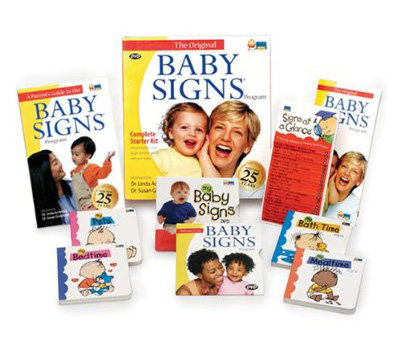
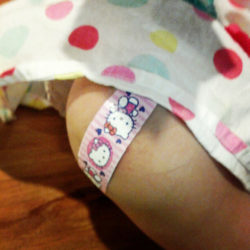
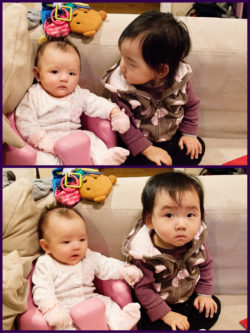



 I like books, gadgets, spicy food, and art. I dislike shopping, hot weather, and the laws of entropy. Although I am a self-proclaimed computer nerd, I still have a love for handbags and makeup... and I am always teetering on high heels. To learn more about me, visit the
I like books, gadgets, spicy food, and art. I dislike shopping, hot weather, and the laws of entropy. Although I am a self-proclaimed computer nerd, I still have a love for handbags and makeup... and I am always teetering on high heels. To learn more about me, visit the 
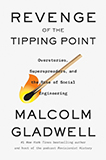
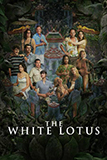
I loved this post and was in awe reading it. Now I wish we had people in our lives to speak to our daughter in a different language. I might have to hire my husband’s cousins from Canada to Skype in French with us all the time or something, heh.
this is amazing. I have always been fascinated by languages- studied French in high school and Italian in college, and like to fantasize about speaking to future children in foreign languages early on to help them pick up multiple languages more easily. That is so smart, having different caretakers speak different languages, combined with signing… too bad I’m not really fluent enough to speak exclusively in anything other than English. ha maybe if I get pregnant I will spend 9 months renewing my language studies so I could attempt something like this with at least one other language 🙂
I hope you will continue to update on how this goes as Claire gets older – I am so curious about how it turns out!
Our son speaks 3-4 languages…
Mandarin Chinese – which his grandparents speak to him and his parents speak to him only when around the grandparents (at least once a week)
Taiwanese Chinese – my mom speaks to him and I speak to him when skyping to my mom
English – he gets it from his nanny during the daytime and parents out in public
Some Spanish – our previous nanny spoke only Spanish to the boys so he has picked up on a few phrases but understands better than he speaks
Does sign language count? And he has his own language where I have NO IDEA what he’s trying to say.
That’s impressive Donna! Any tips on making it work?
I think that staying consistent and explaining helps. For us – when we are getting ready to Skype with my mom, I tell Neddy (in Taiwanese), “we are going to talk to grandma – we’re going to talk in Taiwanese onlyl, okay?”
Same when going over to my in-laws, we tell him (in Mandarin) “We are going to grandma and grandpa’s house – Chinese only!”
For the Spanish, I had taken 6 years of it so when the nanny was around, I would practice my Spanish around her so Neddy would hear me speaking it, too.
As we leave the house, we tell Neddy that we speak English in public
It’s settled. BF will speak to the kids in French, me in English. DONE. 😛
Wow, that is absolutely amazing. It is so impressive that between you and J, you know five languages! I envy that and think it’s so smart of you to teach Claire as much as possible from so young. And I”m bookmarking those sign language books. I plan to use sign language with my son or daughter!
I’ve been a regular reader but this is my first comment. I enjoy your honesty an insight very much and even though I subscribed to it due to the geek part, I’ve started to love the heels too.
I think that every parent should, given the opportunity, teach their child to learn more than one language, particularly if they are of different origins (for example Cantonese, English and Sign is an absolutely perfect combination).
That said, I want to make note of language as a very important method and means of expressing yourself. Each language has their own way of expressing a certain thought or view, in it’s own words. This can be great as a cultural device and mode of language-based self-identification within a group, but I feel that making a child learn many languages at a very young age could obstruct their ability to form a close relationship (and therefore security in expressing oneself) with a single language.
Language is essential in forming identity and confidence of linguistic expression, which is what we present to the world as ourselves.
I, for example, refused to speak another language until I was six, even though I understood everything my Parents/Grandparents/etc said. Don’t worry if your kid isn’t speaking a language, they are getting it. And visiting a country where they actually speak that language always helps.
That’s my two cents!
We definitely want her to have a dominant/primary language (and from the looks of things, it will most likely end up being Korean since she spends the most amount of time with me). That being said, I’m not sure if a close relationship to just one language is necessary. For example, although I am far more comfortable in English than in Korean, there are some feelings and certain phrases, as well as words in Korean that simply cannot be fully translated to English, and vice versa. And in instances like this I am extremely glad that I have two languages in which I can fully express myself. And I know that my husband feels the same way regarding his knowledge of Chinese, English, and Japanese.
Thanks for the comment though — it certainly give me something to think about!
A friend of mine does this with her kids, but only 2 languages. She speaks only English and her husband speaks only Spanish. They have 4 kids and they are all bilingual. I think it’s great!
I love this idea so much, especially putting it in perspective with being able to freely converse with her grandparents. My best friend’s grandparents primarily speak spanish and I have always felt like I missed out by not being able to hold conversations with them. We manage, but it’s not the same.
This is fantastic! Spanish is my mom’s first language and for some reason or the other she never spoke Spanish to us unless we were in trouble 🙂 Our Nanny growing up spoke to us in Spanish and now we understand a good amount (its been 15+ years since being around it 24/7) however, we don’t speak a good amount 🙁
I think that you’ll like this TED talk. The researcher traced how his son acquired language when he was a baby. It’s fascinating:
http://www.ted.com/talks/deb_roy_the_birth_of_a_word.html
Here’s another TED talk that is more in sync with what this article is about. So fascinating.
http://www.ted.com/talks/patricia_kuhl_the_linguistic_genius_of_babies.html
I love this idea! I often worry that my future kids will not know Chinese since my husband only knows English. I can’t wait to hear more about your progress w/ Claire! I want to make sure our kids are multilingual!
Interesting topic!
Having grown up in Malaysia, it’s caught me a bit off-guard since Malaysia’s a naturally multi-lingual country (what with there being three major races – Indian, Malay, Chinese) – hence I’ve never really thought about HOW we learned to communicate in at least 2-3 languages.
Well, for one, Malay is the “official” language so everyone has to learn it (excepting international schools). However, English is also taught and practically everyone can speak it (we have our own “Malaysian-English lingo” ;)). Those from Chinese families tend to send their kids to Chinese or English schools, and they speak either Mandarin, English, Canto or Hokkien (another Chinese dialect) at home. Indians likewise would speak their dialect at home.
The usual mode of communication in an average Malaysian’s daily life would therefore be:
Dialect/Mother tongue at home (MalayIndian dialect/Mandarin/Hokkien/Canto/English depending on race),
English in school and random public interaction (like shopping/gym/meeting new people)
Malay in school subject period/activities involving government employees
In the end, a huge majority of people end up being able to understand at Malay > English/Mandarin/Hokkien/Canto > Indian dialect.
Sorry if this was all a babble to you – I was trying to give feedback in my “multi-language learning experience”…Good luck with the training though! God bless <3